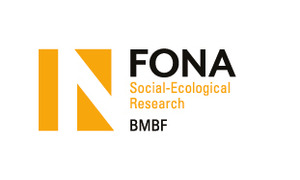Die Covid-19 Pandemie stellt unsere Gesellschaft vor große Herausforderungen und vor allem ältere MitbürgerInnen und solche mit Vorerkrankungen sehen sich immer größeren Problemen ausgesetzt, da sie ihre Wohnungen nicht verlassen können, um das Nötigste – wie Lebensmittel- oder Medikamenteneinkäufe – zu erledigen, ohne sich Gefahren auszusetzen. Gleichzeitig hat die Situation aber auch eine Welle an Solidarität ausgelöst und besonders online Plattformen erfreuen sich neuer Beliebtheit. Die Nachbarschaftshilfeplattform nebenan.de zum Beispiel erfuhr am vergangenen Wochenende (14./15. März) fünfmal so viele Anmeldung als an durchschnittlichen Wochenenden zuvor.
Die online Plattformen bieten dabei den Vorteil, dass Angebote die Aufmerksamkeit einer größeren Menge an Personen erreichen und Hilfesuchende sich passende Angebote und vertrauenswürdiger Personen raussuchen können. So müssen sich zum Beispiel auf nebenan.de Mitglieder verifizieren lassen. Auch haben die Plattformen den Vorteil, dass sie Angebote sortieren und übersichtlich aufbereiten können und oft auch eine erste Kommunikation ermöglichen. Dies führt alles dazu, dass die Nachbarschaftshilfe effizienter gestaltet werden kann und mehr Menschen die Hilfe erhalten, die sie benötigen.
Darüber hinaus nehmen die meisten Nachbarschaftshilfeplattformen keine Gebühren für ihren Service, sondern finanzieren sich oft auf andere Arten: nebenan.de finanziert sich über freiwillige Spenden, Einnahmen von Gewerbetreibenden, die auf der Plattform auf ihr lokales Unternehmen aufmerksam machen können oder die Möglichkeit für Städte die Plattform gegen eine Gebühr nutzen zu können. Dies hat den Vorteil, dass der Service für alle zugänglich ist und die Hilfe wirklich im Vordergrund steht.
Ein Problem haben die Nachbarschaftsplattformen aber: wie erfahren Hilfesuchende von den Angeboten? Besonders älteren Mitbürgern fehlt oft die Internetaffinität. Die Webseite gemeinschaft.online hat daher eine Telefonhotline (+49 7172 9340048) eingerichtet, die die Vermittlung per Telefon koordiniert. Hilfeanfragen werden aufgenommen und bei nebenan.de hochgeladen. Nebenan.de hat inzwischen auch eine eigene Hotline gestartet (0800-866 55 44).
Neben Plattformen, die sich auf Angebote für die Nachbarschaft spezialisiert haben, gibt es auch zahlreiche andere Möglichkeiten Hilfe zu finden oder anzubieten: es haben sich lokale Facebook Gruppen gebildet, bei Instagram und Twitter gibt es unter den Hashtags #nachbarschaftschallenge oder #coronahilfe Angebote und auch Organisationen wie das Deutsche Rote Kreuz bieten eine Einkaufshilfe an. Das Social Entrepreneurship Netzwerk Deutschland aktualisiert in einem eigenen Blogbeitrag fortführenden Angebote zur Nachbarschaftshilfe aber auch zu Themen wie Online-Education, Home Office, Online Meeting & Event Tools und vielen mehr, die in der aktuellen Lage unterstützen können. Die zahlreichen Angebote und Möglichkeiten zeigen, dass viele Leute bereit sind in schwierigen Zeiten zu helfen und unsere Gesellschaft enger zusammenkommt, um aktuellen Problemen entgegenzutreten.
Quellen / Sources:
https://presse.nebenan.de/pm/das-geschaftsmodell-von-nebenan-de
Platforms organizing neighborhood assistance are an useful instrument in times of the Coronavirus to connect people seeking help and people offering help. The platforms coordinate supply and demand and ensure that trust is established between help-seekers and help-providers.
The Covid-19 pandemic poses a huge challenge to our society and especially elderly citizens and citizens with pre-existing medical conditions are facing increasing problems as they cannot leave their apartments to do the most essential tasks, like buying groceries or medicine, without exposing them to medical threats. At the same time the current situation has led to a wave of solidarity and online platforms have increased in popularity as a channel to offer help. For example, the neighborhood assistance platform nebenan.de had five times as many new registrations last weekend (March 14th/15th) then during an average weekend before.
The online platforms have the advantage that help-offerings reach a broader audience and help-seekers can choose suitable offers. Also help-seekers can choose from a number of trustworthy suppliers as for example on nebenan.de help-providers need to be verified. Furthermore, the platforms have the advantage that offers can be sorted and are clearly arranged. Also, on most platforms a first way of communication is possible. This all results in a more efficient neighborhood assistance and the people get the help they really need.
In addition to that, the most neighborhood assistance platforms do not charge help-seekers or help-providers a fee for their services as they finance themselves in different ways: nebenan.de finance itself via donations, fees from businessowners who want to promote their local offerings on the platform, or via a fee they charge public organizations who want to use the platform to share information. This different way of financing has the advantage that the platform’s service and the help offered on the platform is available to everyone, putting the idea of “helping out” first.
The platforms have one problem, though: how do help-seekers find out about the offerings? Especially elderly citizens often lack the skills necessary to sign up and use an internet platform. As a solution the website gemeinschaft.online started a phone hotline (+49 7172 9340048) where they coordinate the help-seeking process on the phone and upload the request to nebenan.de. Nebenan.de also reacted and started its own phone hotline (0800-866 55 44).
Besides platforms offering neighborhood assistance, there are a number of other possibilities to offer or seek help: local Facebook groups were created, on Instagram and Twitter people can offer or seek help with the hashtags #nachbarschaftschallenge or #coronahilfe, and organizations like the German Red Cross offer help for grocery and medicine shopping. The Social Entrepreneurship Network Germany has an own blogpost where they update all the offerings on neighborhood assistance but also around topics like online education, home office, online meetings and event tools. The numerous amounts of offerings and possibilities to seek help show that many people are willing to help during those difficult times and that our society gets closer together to face the current difficulties.
24/03/2020



